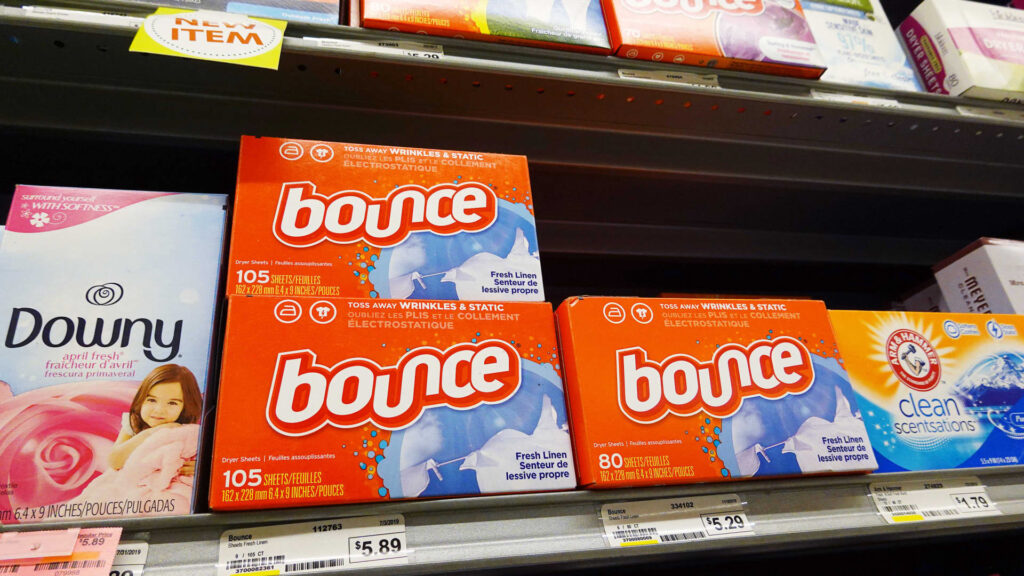Procter & Gamble (PG) Q1 2025 earnings

Procter & Gamble on Friday reported weaker-than-expected revenue as lower demand in China again weighed on its sales.
The company’s organic sales in Greater China, its second-largest market, fell 15% in the fiscal quarter. As home prices fall and jobless rates rise in the country, shoppers have pulled back their spending, hurting P&G’s sales for shampoo, diapers and other consumer staples.
While executives maintained their confidence in China long term, demand isn’t expected to recover for at least several more quarters.
“The market continues to be weak and will be weak, we believe, for a number of quarters to come,” CFO Andre Schulten said on a call with press.
P&G’s outlook for China didn’t take into account the Chinese government’s recently announced plans to boost the country’s economy.
Shares of the company fell roughly 1% in morning trading.
Here’s what the company reported compared with what Wall Street was expecting, based on a survey of analysts by LSEG:
- Earnings per share: $1.93 adjusted vs. $1.90 expected
- Revenue: $21.74 billion vs. $21.91 billion expected
P&G’s net sales dropped 1% to $21.71 billion. Organic revenue, which strips out foreign exchange, acquisitions and divestitures, rose 2%, helped by higher prices.
The company reported flat volume for the quarter. The metric excludes pricing, which makes it a more accurate reflection of demand than sales. Like many consumer companies, P&G has seen demand for its products fall after several years of price hikes. Last quarter was the first time in more than two years that its volume increased.
In the U.S., P&G’s volume grew in eight of its 10 categories, and the company isn’t seeing any trade down to private-label products, Schulten said.
But it’s a different story in Greater China, which saw its organic sales worsen compared with the prior quarter. The company called out volume declines in China for both its hair care and oral care segments. Still, Greater China accounts for less than 10% of P&G’s revenue.
“The issues around Asia and execution are pretty minimal compared to some of the other rough spots that the company’s gone through in the past,” said Charles Rinehart, chief investment officer of Johnson Investment Counsel, a longtime shareholder in Procter & Gamble.
P&G’s beauty business, which includes brands like Pantene and Olay, saw volume fall 2% in the quarter. In particular, its skin care segment struggled, with organic sales tumbling more than 20%. P&G blamed the steep decline on lower volume and decreased sales of its pricey SK-II brand, which has struggled ever since pandemic lockdowns. Anti-Japanese sentiment in China has been the latest challenge for the brand; last year, SK-II sales took a hit as Chinese consumers boycotted the brand, fearing that Japan’s release of treated radioactive waste would contaminate the products.
Both P&G’s health care and baby, feminine and family care divisions both reported 1% declines in volume for the quarter. But its baby care segment, which includes Pampers diapers, had an even worse quarter, with its organic sales falling by mid-single digits. As the global birth rate continues to fall, P&G has turned to pushing consumers to buy more expensive baby care items, like its Pampers Premium diapers, to grow sales. But that strategy can’t always make up for declining volume.
P&G’s grooming division, which includes Gillette and Venus, reported 4% volume growth. The company credited innovation for its strong performance.
The company’s fabric and home care business saw volume rise 1% in the quarter. The division includes Swiffer, Febreze and Tide products.
P&G reported fiscal first-quarter net income attributable to the company of $3.96 billion, or $1.61 per share, down from $4.52 billion, or $1.83 per share, a year earlier.
Excluding restructuring charges and other items, the company earned $1.93 per share.
P&G reiterated its fiscal 2025 forecast. It anticipates core net earnings per share in a range of $6.91 to $7.05 and revenue growth of 2% to 4%.
#Procter #Gamble #earnings
News plays a pivotal role in our lives by keeping us informed and connected to the world. It serves as a critical source of information, offering updates on current events, politics, economics, science, and more. Through news, we gain awareness of global issues and local developments, helping us make informed decisions in our personal and professional lives. News also fosters discussion and debate, encouraging critical thinking and perspective-taking. Moreover, it promotes transparency and accountability among governments, businesses, and other institutions. In a rapidly changing world, staying updated with the news enables us to adapt to new challenges and opportunities, shaping our understanding of the complexities of society. Ultimately, news is not just about information; it empowers us to participate actively in the world around us, contributing to a more informed, engaged, and responsible global citizenry.
Health is fundamental to our well-being and quality of life, making it an essential aspect of daily existence. It encompasses physical, mental, and emotional aspects, influencing our ability to function effectively and enjoy life fully. Prioritizing health allows individuals to maintain optimal physical fitness, reducing the risk of diseases and promoting longevity. Mental health, equally crucial, affects our cognitive abilities, emotional stability, and overall happiness. Investing in preventive healthcare through exercise, balanced nutrition, and regular medical check-ups helps in early detection of potential health issues, ensuring timely intervention and treatment. Beyond individual benefits, a population’s health impacts societal productivity and economic stability. Governments and organizations worldwide emphasize public health initiatives to address pandemics, health disparities, and promote overall well-being. Ultimately, health serves as the foundation upon which we build our lives, influencing our ability to pursue goals, nurture relationships, and contribute meaningfully to society.
Money plays a crucial role in our lives as a means of financial security and freedom. It enables us to meet basic needs such as food, shelter, and healthcare, while also providing opportunities for education, travel, and personal growth. Beyond material comforts, money facilitates social connections and experiences that enrich our lives. It empowers individuals to invest in their futures, whether through savings, investments, or entrepreneurial ventures, thereby fostering economic stability and growth. However, the pursuit of wealth should also be balanced with ethical considerations, as money can influence relationships and societal dynamics. Responsible management of finances is key to achieving long-term goals and mitigating financial stress. Ultimately, while money is a tool for achieving aspirations and fulfilling desires, its true value lies in how it is utilized to improve both personal well-being and the broader community.
Earning Easy Money in 2024: Opportunities and Considerations 💸
In 2024, the landscape of earning easy money presents diverse opportunities, albeit with considerations. The digital age offers platforms for freelancing, online trading, and e-commerce, allowing individuals to leverage skills and creativity for financial gain. Cryptocurrency investments continue to allure with potential for quick profits, yet they entail high volatility and risk. Moreover, the rise of the gig economy enables flexible work arrangements through apps and websites, offering quick payouts but often without job security or benefits. Passive income streams such as rental properties and investments in stocks or bonds remain viable, but demand initial capital and ongoing management. Amid these options, caution is essential to avoid scams and unsustainable ventures promising overnight success. Ultimately, while the allure of easy money persists, informed decisions, diligence, and a long-term perspective are crucial for sustainable financial growth and security in the dynamic year ahead.






